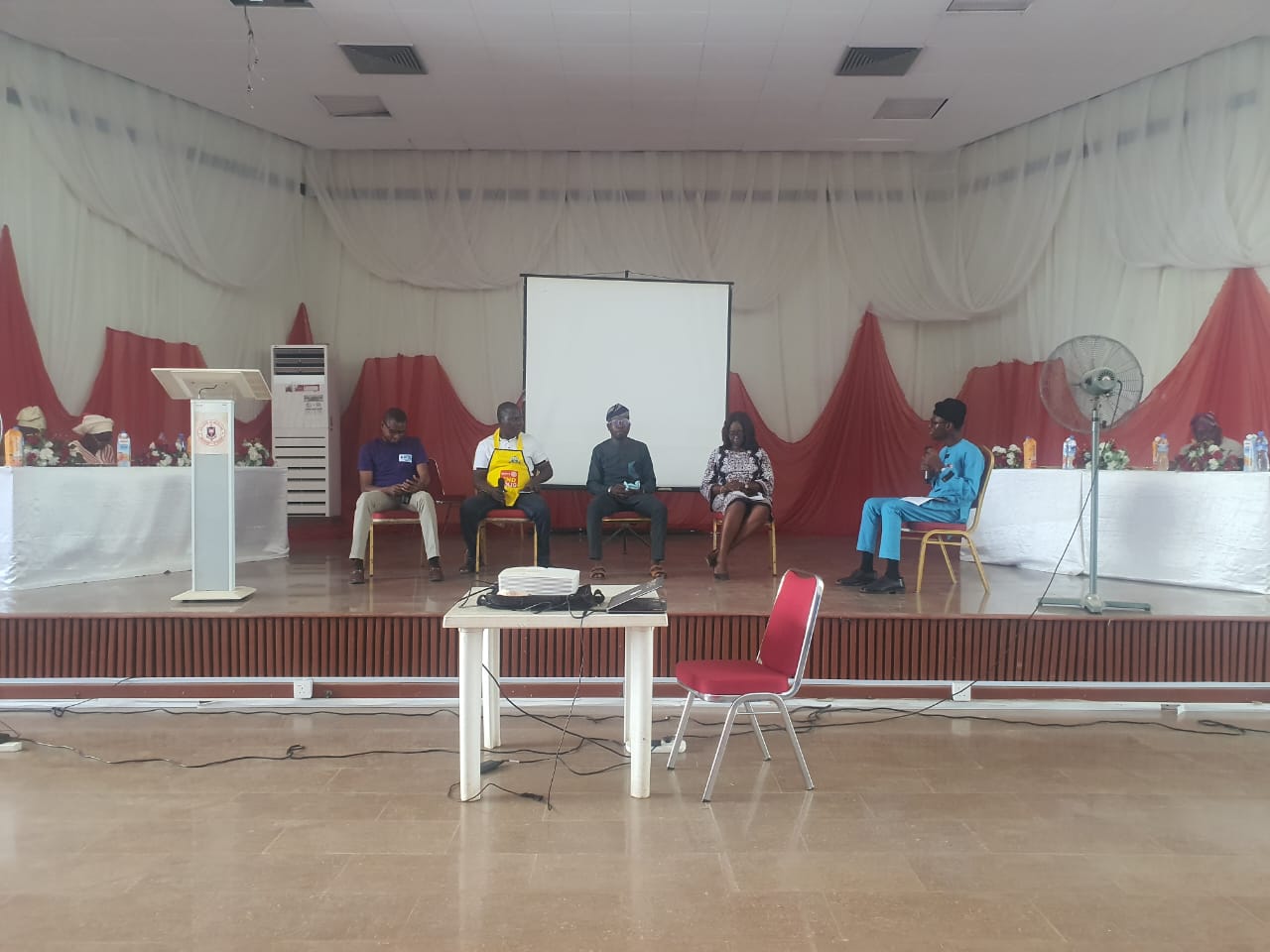Breaking the Chain: Combating NCDs

The SmileBuilders initiative, an organization focused on combating Non-Communicable Diseases (NCDs) held a symposium, themed: “Breaking the Chain” at the Paul Hendrickse Lecture Theatre on the 2nd March, 2024. The symposium was a flurry of activities geared majorly towards the better understanding of the growing burden of NCDs in our environment.
The event was opened with a speech from the Chairman of the event, Dr. T.A. Lawal Consultant Paediatric Surgeon, UCH, and was followed by an opening remark by the Director of the initiative, Dr. Dada Taiwo. The Director of Media Management, Miss Zainab Aderohunmu mounted the podium to give a brief exposition about the intiative and the projects done so far. These included the Pink Project 1.0, Donate-a-pint 1.0 to 4.0, Partial Exchange Transfusion Project (PET), health outreaches amongst a host of others.
The Keynote speaker for the day, Professor Wuraola Shokubi did justice to the keynote address by delivering an enlightening lecture on the topic of NCDs. She began by succinctly explaining its definition, then further expounded on the risk factors, the global burden of NCDS and the dream targets for Nigeria by WHO.
The latter part of her lecture coned down on the burden of Sickle Cell disease (SCD) in Nigeria not because as a haematologist, SCD is easily her forté but for the fact that this condition has been named among the top ten NCDs in our environment that require immediate action. She further revealed that the financial burden of SCDs has been likened to that which is spent in the care of patients with cancer. The Lecture was delivered with such simplicity and much clarity that Dr. Adebayo, Consultant Paediatric cardiologist, UCH, would later comment on how much she missed having the Professor as her lecturer during her years of being a medical student.

A panel session moderated by Mr. Convenant Oladele featured four panelists from different spheres of influence including Dr. Jokotade Adeleye, Consultant Endocrinologist, UCH. The aim of this session revolved round hearing the point of views of these major stakeholders on the topic of discourse: Rising Burden of NCDs: Causes and way forward.
One of the panelists, Dr. Kamil Ajagbe who doubles as a health professional and an expert in the technical world acclaimed to the immense contribution technology will make in improving the management of NCDs especially in Nigeria. Also, Mr. Olayinka Adebayo a Professional in the world of Computer Science, and Dr. Adedoyin from the Public Health department who represented Dr. M.B. Olatunji, the executive secretary of the Oyo State Medical Board both attested to how solutions should be tailored to the needs of the communities for better acceptance and how policy making would be key to solidifying these solutions.
Awards were presented to keynote speaker, panelists and the board of trustees. In addition to sharing ideas and solutions, the symposium also sought to raise funds towards the upcoming projects for the year and this was coordinated by Miss Zainab Aderohunmu.
The side attractions that featured in course of the event included a ‘spoken word’ delivery by Miss Olatomiwa Komolafe a 5th year medical Student and an art exhibition by Miss Ifunaya Nebo, a 6th year medical Student and artist who noted that “Art is therapy” and therefore, has its special part to play in breaking the chain of NCDs. Finally, the event was brought to a close with closing remarks from Dr. Dada Taiwo and a vote of thanks by Mr. Abdulhammed.
An exclusive interview with the Head of the committee for the symposium, Mr. Abdulhammed Babatunde revealed that the symposium was the first of its kind since the inception of the initiative more than six years ago. Although he expressed uncertainty about the symposium being an annual event, the symposium did achieve the impact intended through focused discussions on topic of NCDs. Hence, it is not far-fetched to hope that solutions discussed are brought to limelight in the national management of NCDs. At the end of the event, it was avidly clear that combating NCDs in our environment would require a multidisciplinary approach.
